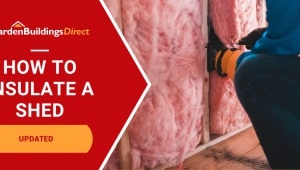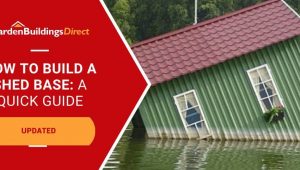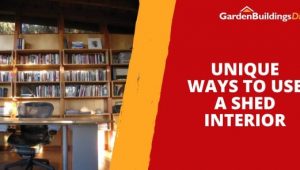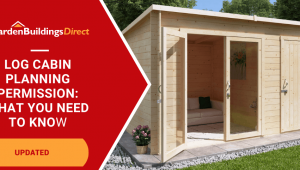Jump to:
Metal garden rooms are all about strength, durability, and being low-maintenance. With just a little care, they can handle tough weather, pests, and even fire. Many modern ones also come with a ‘galvanised’ finish that makes them rust-resistant—a solid improvement, wouldn’t you say?
If you’re considering one, this guide will cover the basics to help you understand what you’re getting, including how they’re made and the types of metal used. We’ll also share a recommendation that will make you even more excited about getting a metal garden room, and it might just be the perfect one for you!
How Are Metal Garden Rooms Made?
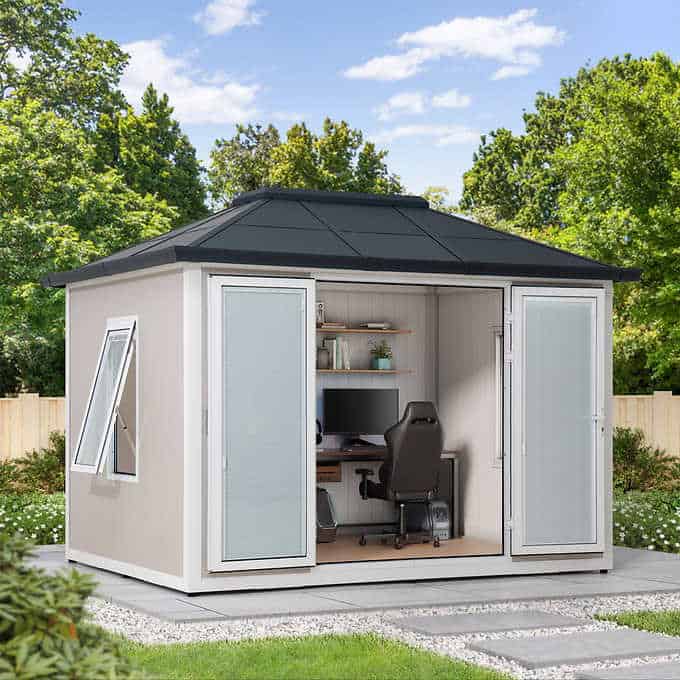
Metal garden rooms are mostly built with steel or high-grade aluminium frames. The structure is basically a grid of horizontal beams and vertical columns welded together to support the floors, walls, and roof. Of course, the extra features can vary depending on the model and who makes it, but that’s the gist of it.
Some manufacturers go a step further by using hot-dipped galvanised steel panels to make them even stronger. Galvanisation is when the steel gets coated with zinc, which stops moisture and oxygen from reaching the metal underneath, aka rust.
When you’re shopping around, consider a galvanised steel garden room model as one of your options. They’re made to handle tough weather, so they’ll last longer, even if you don’t spend much time looking after them.
Which Metals Are Used in Metal Garden Rooms?
Here’s a quick rundown of the two most common types of metal garden rooms you’ll find:
Steel
High tensile strength, durability, corrosion resistance, and low cost are some of the qualities of steel. Its strength-to-weight ratio also means less steel is needed in a single support or beam. This cuts down on material costs and makes it more sustainable in return.
A steel garden room can handle physical impacts and forces pretty well. However, it can start to corrode if it’s exposed to moisture and oxygen over time. To stop this, a good powder coating can add a protective layer—something you can do yourself if you’ve got the right tools. Or you can just look for a model that already comes with powder coating, saving you the bother.
Aluminium
Aluminium is the second most popular metal in construction after steel. It’s lightweight, corrosion-resistant, and a good conductor of heat and electricity. While it’s not quite as tough as steel, it’s still pretty durable.
Aluminium garden rooms are protected by a thin but strong layer of aluminium oxide that helps stop rust. Plus, it’s recyclable, which is excellent if you want something more eco-friendly.
How Can I Use My Metal Garden Room?
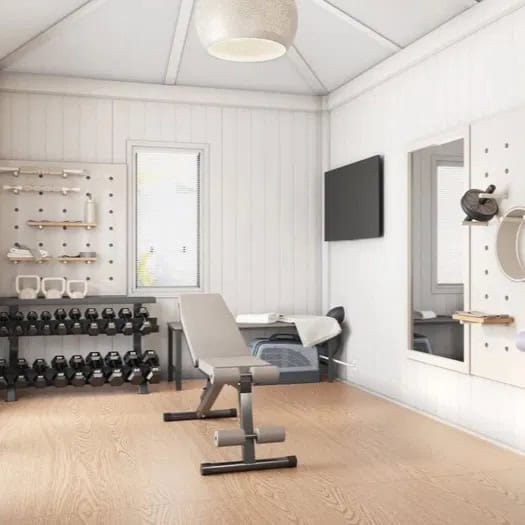
Metal garden summerhouses are a great way to add extra space to your home. Here are a few ideas to get you thinking:
- Garden office: Perfect if you work from home and need a quiet, separate space to focus. If you want to use it all year round, look for insulated ones, such as these insulated rooms.
- Home gym: Turn your garden room into a private fitness area. No need to worry about disturbing anyone or feeling self-conscious.
- Studio or hobby room: If you’re into creative stuff, this could be ideal. You can customise it for things like music, painting, or whatever your passion is. The Sunjoy Esquire Garden Studio might be just what you need.
